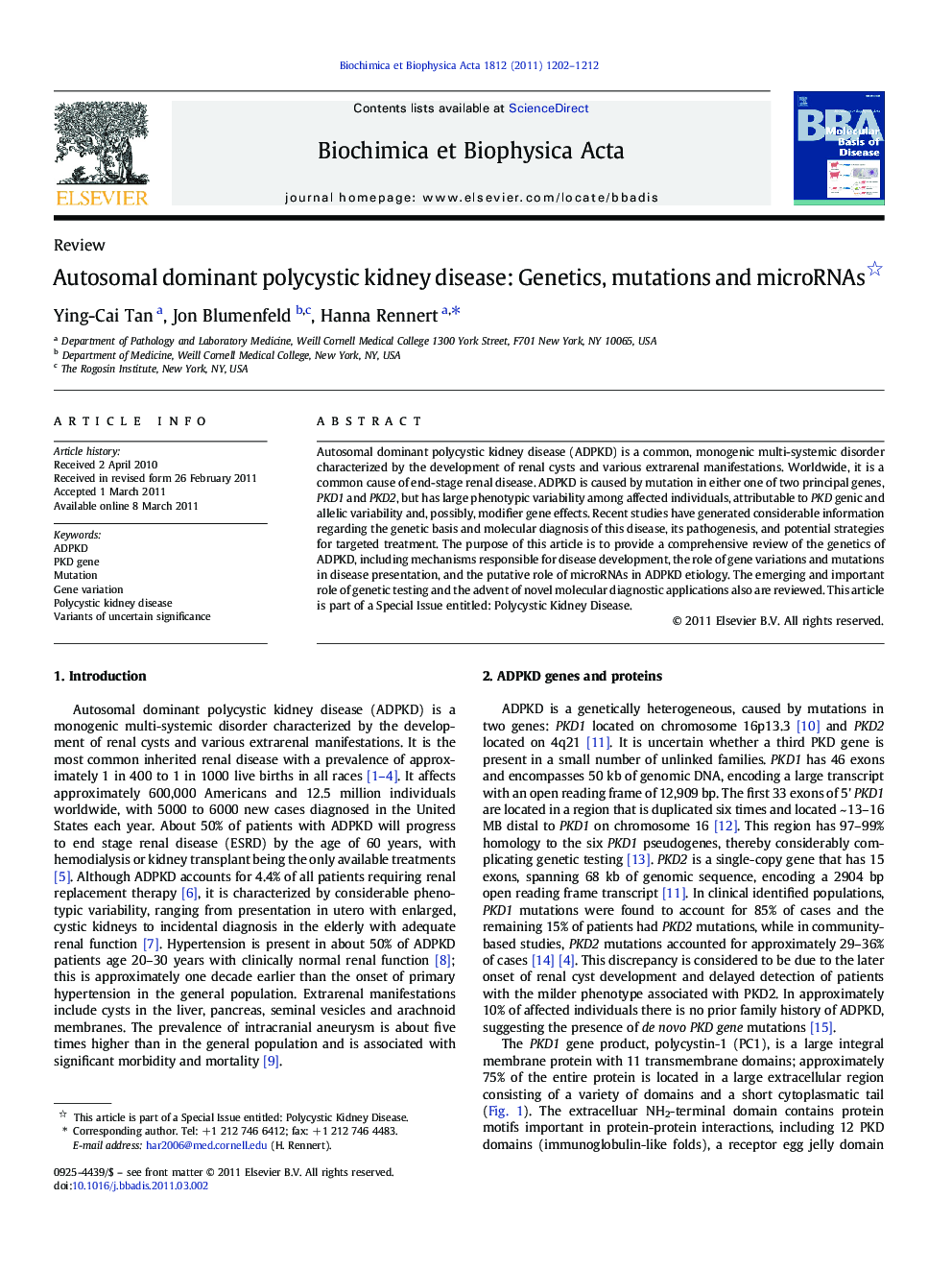| Article ID | Journal | Published Year | Pages | File Type |
|---|---|---|---|---|
| 1905157 | Biochimica et Biophysica Acta (BBA) - Molecular Basis of Disease | 2011 | 11 Pages |
Autosomal dominant polycystic kidney disease (ADPKD) is a common, monogenic multi-systemic disorder characterized by the development of renal cysts and various extrarenal manifestations. Worldwide, it is a common cause of end-stage renal disease. ADPKD is caused by mutation in either one of two principal genes, PKD1 and PKD2, but has large phenotypic variability among affected individuals, attributable to PKD genic and allelic variability and, possibly, modifier gene effects. Recent studies have generated considerable information regarding the genetic basis and molecular diagnosis of this disease, its pathogenesis, and potential strategies for targeted treatment. The purpose of this article is to provide a comprehensive review of the genetics of ADPKD, including mechanisms responsible for disease development, the role of gene variations and mutations in disease presentation, and the putative role of microRNAs in ADPKD etiology. The emerging and important role of genetic testing and the advent of novel molecular diagnostic applications also are reviewed. This article is part of a Special Issue entitled: Polycystic Kidney Disease.
Research highlights► Autosomal dominant polycystic kidney disease caused by PKD1 or PKD2 mutations. ► Phenotypic variability mainly attributed to PKD genic and allelic variability. ► Multiple genetic mechanisms including microRNAs can affect cytogenesis and disease. ► Genetic testing is available and increasingly useful for ADPKD patient management. ► Strong databases and computational tools greatly aid with ADPKD mutation Analysis.
